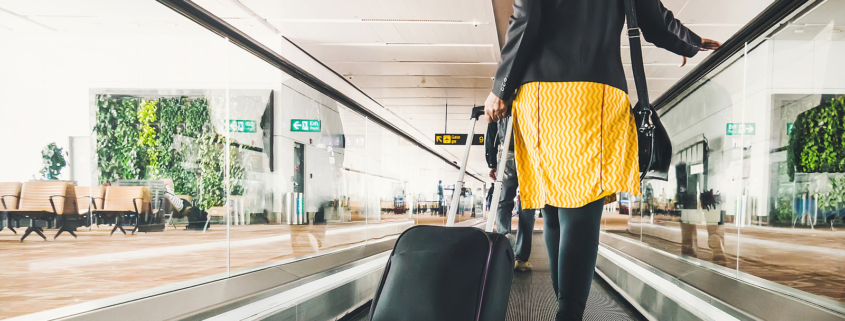Is It Safe to Travel During or After Radiotherapy Treatment?
Treatment for cancer at a radiotherapy centre can be a long-term process involving a lot of ancillary elements beyond the specific doses of radiation used and any adjunctive primary treatments.
Your multidisciplinary team will include a wide variety of specialists and health professionals who focus not only on the details of your treatment but also are there to help with other aspects of your life during the treatment.
These can include physiotherapists to help with mobility, dietitians to assist with nutritional needs that occur during therapy treatments and psychologists to help provide support whilst navigating diagnosis, treatment and recuperation.
One question that is sometimes asked by people, particularly when they have recently been diagnosed, is whether they have to cancel any planned holidays or travel, and it is a more important question that people give credit.
When Can You Go On Holiday?
In most cases, travel and holidays are beneficial for a person’s mental health, and whilst it can seem like a trivial concern in the wake of a diagnosis it is not only an important question to ask your doctor but the answer is not always no.
As with physical activity and diet, it is important to maintain as much of your typical routine as you can, and sometimes that can involve going on day trips, using a holiday as a form of prehabilitation or even in some cases having a break in between sessions.
As every radiotherapy treatment is tailored to a person’s individual needs, whether you can travel on holiday or not will depend on the planned holiday itinerary, your overall health and the nature of the treatment.
Sometimes it will not be possible, but in other cases, a doctor can give advice on how to travel safely, take precautions and make the most of the time away without any risks. They can also signpost you to services such as travel clinics which can provide specific advice for your destination.
In some cases, it can be fine to travel after a few days of recuperation, whilst in other cases, it might be advisable to wait until after the course of treatment is completed.
What Types Of Holidays Are Best?
Typically, shorter breaks closer to home or to your place of treatment are the best idea rather than a lengthy holiday abroad.
Part of the reason for this is travel insurance, as many insurers will ask questions about your health to get a complete picture and arrange the most appropriate policy. This may include a medical screening questionnaire, a request for a doctor’s letter, or a combination of prerequisites.
Much of this relates to ensuring you have appropriate healthcare provision abroad as well as being healthy enough to handle the unusual environmental effects of flying.
A more straightforward reason for a short break is to ensure you have the energy to enjoy the activities you have planned and to get a feeling for how the holiday experience might change during and after treatment.
What Should You Check Before Travelling?
First of all, consult with your doctor and your cancer team before going anywhere to make sure it does not conflict with your treatment schedule, that the location is safe for you to travel to and that any activities planned are safe for you to do whilst there.
Typically, this means being mindful of infections, and it is important to take any vaccinations or antimalarial medication to reduce the risk of contracting a disease.
As some vaccinations are required for entry into certain countries such as those for yellow fever, make sure to check with your doctor if you can have certain vaccinations. They may also suggest or prescribe antibiotics to take if you do become unwell on holiday.
As well as this, be mindful of fatigue, as your energy levels may fluctuate more than usual due to the effects of treatment. This is why more relaxing holidays are often more advisable at first rather than adventure holidays or travel where you may be expected to walk a lot.
Similarly, after radiotherapy, your skin may be more sun sensitive than it would ordinarily be, so it is essential to cover up any part of your body that was treated by radiotherapy, wearing a hat, applying high-SPF sunscreen and spending time in the shade during peak sunlight hours.
Make a note of any medications you are taking and try to take an extra few days’ supply if possible, make sure it is stored appropriately whilst travelling and once you arrive, and make sure it is packed in your hand luggage rather than checked in.
A holiday can be a hugely beneficial event during a long treatment, but if it is not possible, it can also be a celebration.


